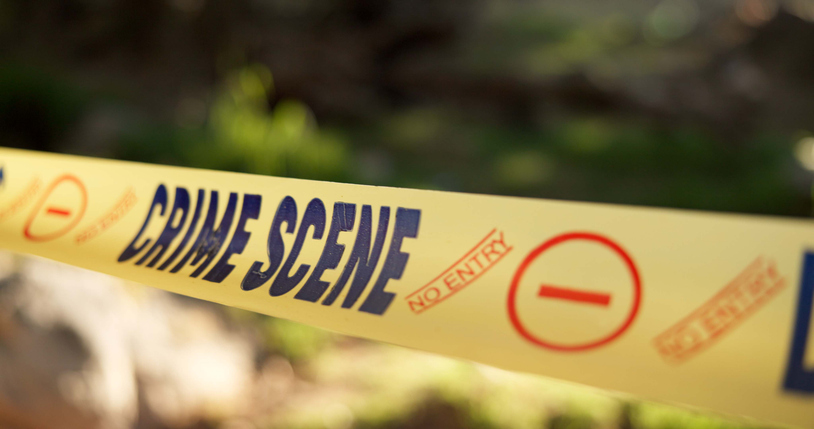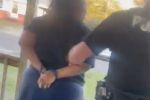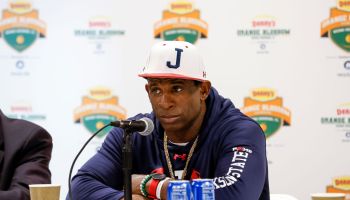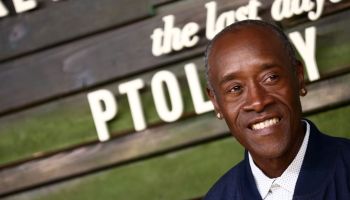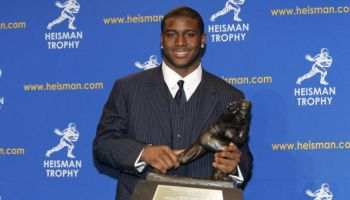After being called out for homophobia in his classic film School Daze, on Twitter Monday evening, legendary filmmaker Spike Lee vigorously defended his work and called the criticism “off.”
RELATED:
Luther ‘Uncle Luke’ Campbell: Spike Lee Is A Conniving and Scheming Uncle Tom
The prolific LGBT activist, feminist, writer, known simply as Anti-Intellect, tweeted that Lee’s 1988 film, currently in the news celebrating its 25th anniversary, was not a cinematically balanced portrayal of elite HBCU Morehouse College. This apparently struck a harsh chord within Lee, who not only graduated from the college in 1979 and remains a trustee, but hails from a long Spel-House legacy.
His grandfather graduated from Morehouse in 1927; his father in 1951; his grandmother graduated Spelman in 1929 and his mother in 1954. One can assume that Lee speaks with comfortable authority on the social caste system that prevailed at the HBCU in 1988 when the film was released. So it should have come as no surprise that Anti-Intellect’s suggestion that his film was not only homophobic, but inaccurate, led to a brief, tense exchange.
https://twitter.com/SpikeLee/status/311219921751261184
https://twitter.com/SpikeLee/status/311226253501935617
https://twitter.com/Anti_Intellect/status/311227662083424256
https://twitter.com/SpikeLee/status/311219293096382464
While it is true that Lee’s 1996 Get On The Bus clearly strives to normalize homosexuality and depict it with the dignity, Anti-Intellect’s thinly-veiled suggestion that Lee may harbor homophobic tendencies which manifest in his films is not without precedent, most notably tackled in Marlon Riggs 1989 film, Tongues Untied, which takes Lee and School Daze to task for its unfettered homoaggression.
SEE ALSO:
‘Django’ Humor: ‘SNL’ Skit Includes Spoof Of Mandingo Fight Scene [VIDEO]
Gridiron Dinner: President Obama Cracks Joke About Marco Rubio’s Water Moment [VIDEO]
Painfully aware of the criticisms hanging over his head, for his comedy, She Hates Me, starring Kerry Washington as a lesbian so desperate to have a baby that she and her girlfriend hire her ex-boyfriend to father their child, Lee hired lesbian sex-writer Tristan Taormino to ensure that the script wasn’t speaking from a heteronormative perspective.
“There were some people who got mad at me because I had characters in my films who were homophobic. But just because I have a character in a film who’s homophobic, that doesn’t mean I’m homophobic,” Lee said.
In a revealing 2004 interview with The Advocate, Lee freely admitted to viewing the world from a myopic, cisgender hetero-lens, and said that he hired Taormino to “red flag that stuff” so that lesbian viewers would truly feel that the film was a realistic depiction of their reality. Lee continued to share that he had to learn that the LGBT community wasn’t any more monolithic than the Black community and that the making of the film was a growing experience for him.
While this is admirable, as with most heterosexual men accused of harboring homophobic thoughts, Lee seems to be much more comfortable discussing lesbian, Black women as opposed to gay, Black men.
Want to Keep Up With NewsOne.com? LIKE Us On Facebook!
In a 2004 interview with Richard Knight, Jr., Lee, while denying that he is homophobic, proceeds to make statements filled to the brim with homoanxiety:
[Gay marriage]doesn’t bother me, you know, I think that we have to evolve as a country. As a parent it’s amazing when me and my wife Tanya have to explain to our children who come and say, “Mommy, daddy, so and so has two daddies, so and so has two mommies” and at that age they’re very open so we were very careful how we explained it to them and they’re cool with it. But they noticed it and again, you still have to take into consideration, what is the capacity level of the 7 or 5 year old mind understanding that? Then they said, “Does that mean they’re gay?” Gay?!?! Where do you get that from, you’re five years old! (LAUGHS) And, again, that points out kids are growin’ up so quick. What a 7 year old knows now, I didn’t know until I was 20 and I’m 46. I don’t know that that’s necessarily a good thing, either.
Being worried that your children will be exposed to gay couples as if it’s an intrusive, viral concept they need to be shielded from is homophobia.
To Lee’s credit, in The Advocate interview, he admits that the Black community as a collective is homophobic; but then the credit is retracted because he then opines that “Down-low brothers” are the reason that HIV/AIDS is decimating our communities.
That is blatant homophobia.
But, here again, there is clear contradiction. In the same interview, Lee calls out Morehouse for its negligent protection of its gay students and the inherent hypocrisy of being a college that supposedly stands for equality:
There’s always been a homosexual population at Morehouse — not just the student body but the faculty too. And we have to be tolerant of everybody. I don’t know how you could keep telling the world, “Dr. King went to Morehouse and he fought for civil rights and then at the same school not advocate for the rights of your homosexual students.”
When asked if he would be willing to speak out against homophobia at Morehouse, he said that he had — by speaking to one male student who fell victim to a hate crime.
The bottom line is clear: Spike Lee clearly speaks from a position of heterosexual, male privilege. A man aware — and vocal — about his ignorance as it pertains to homosexuality and how it should organically intersect in film as it does in society. A man who feels that young people should be shielded from it and one who feels that the hesitancy to embrace or at least not stigmatize gay, Black men has dramatically increased cases of HIV/AIDS in our community.
And when it comes to his unexpected and repeated rebuttal on Twitter against accusations of homophobia in film: Thou protests too much. It is fact that the film is reflective of the homophobia that he acknowledges ran rampant on campus and if cinematic balance is lacking, that is his prerogative — he told the story he wanted to tell. His need to defend himself is more revealing than any commentary.
It may very well be true that Lee honestly depicted his Morehouse; and it is definitely true that fraternities are notoriously homophobic. He also has every artistic right to make the film that he wants to make. But if Lee struggled with the evolution of acceptance of homosexuality within the Black community in 2004, it may also be true that he purposely tap-danced around depicting that burgeoning diversity in film in 1988 — not for the sake of authenticity, but because he felt uncomfortable depicting something as revolutionary as LBGT acceptance in ’80’s Black America.
Within the confines of a homophobic Black community, that truth, coupled with his current awareness and advocacy, is absolutely nothing to be ashamed of; but if open, honest dialogue is to ever occur. It is something to be admitted.
***
Follow Kirsten West Savali on Twitter at @KWestSavali.
